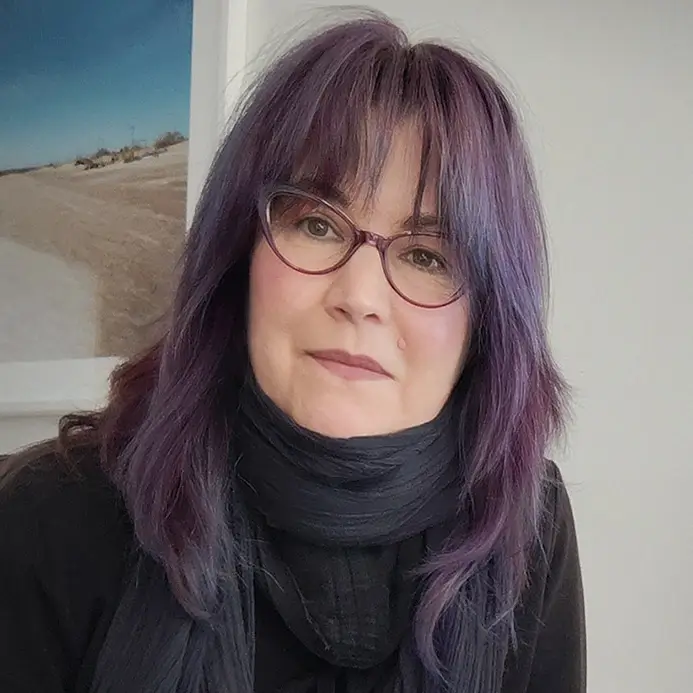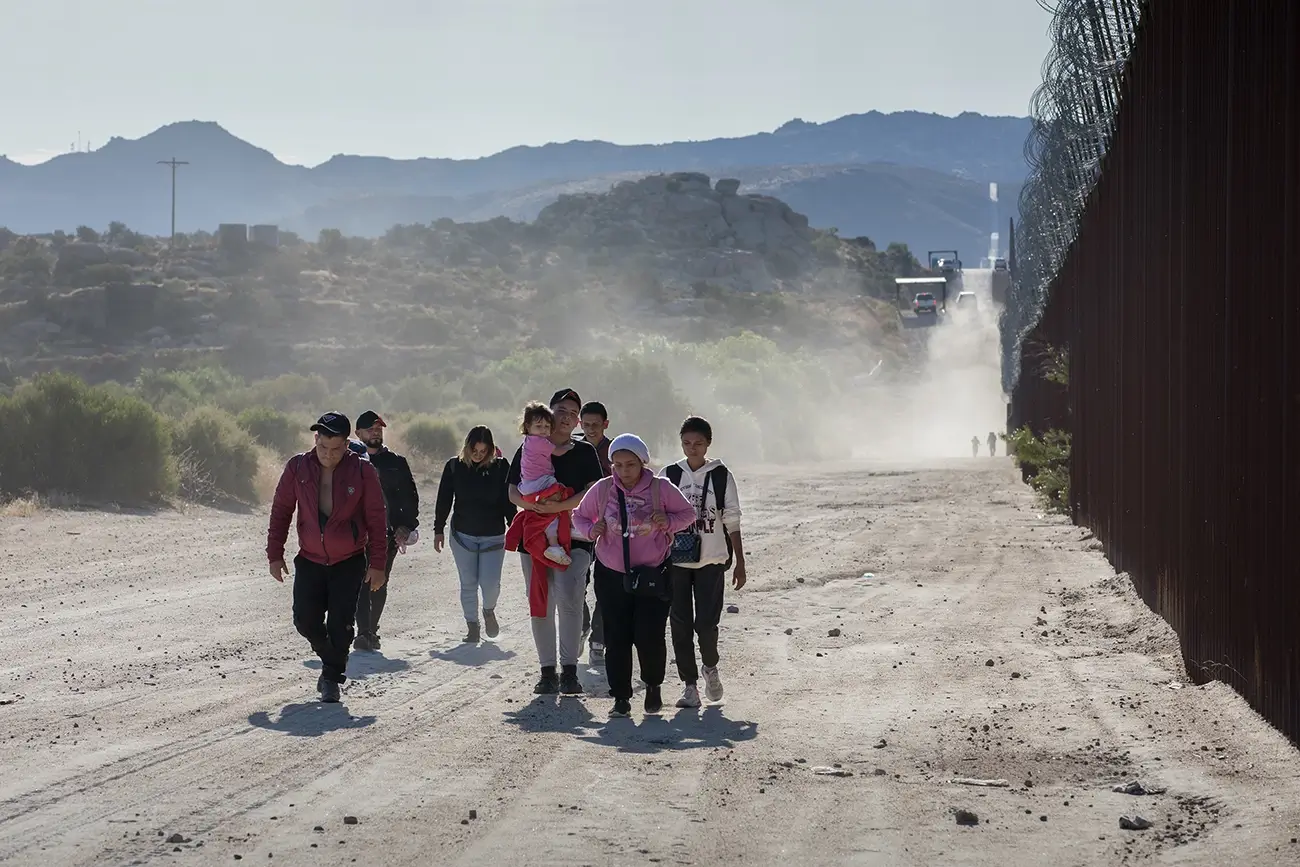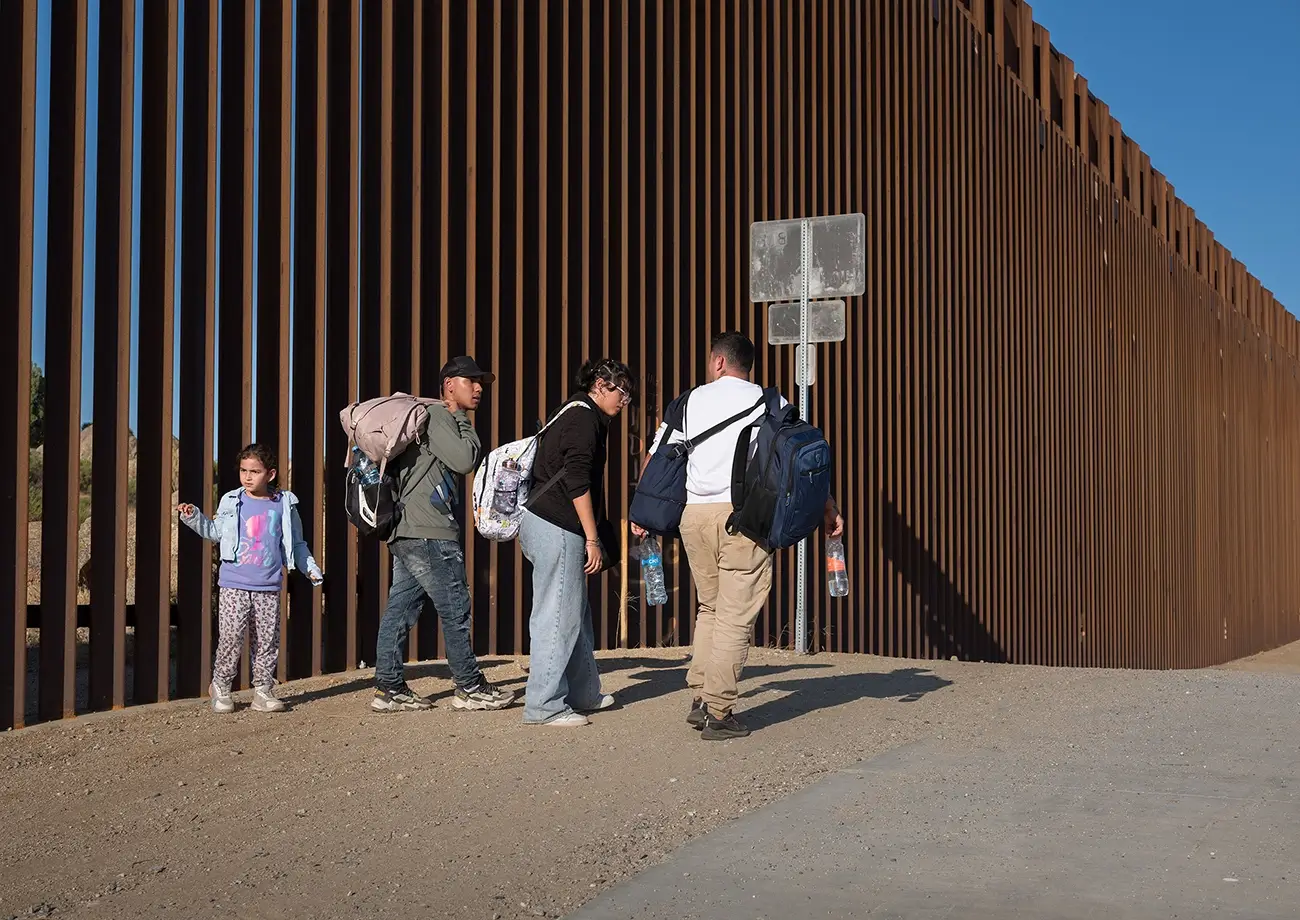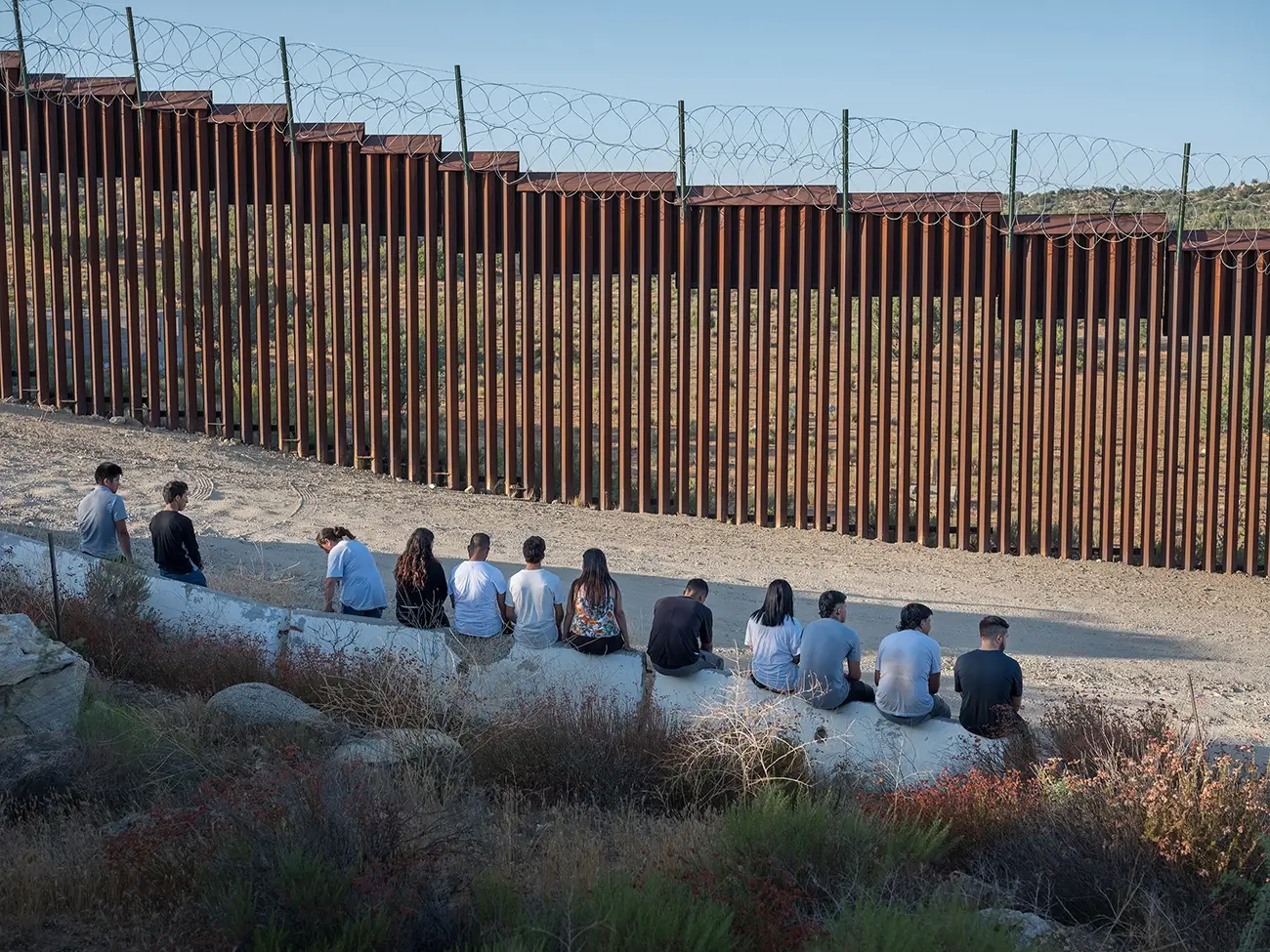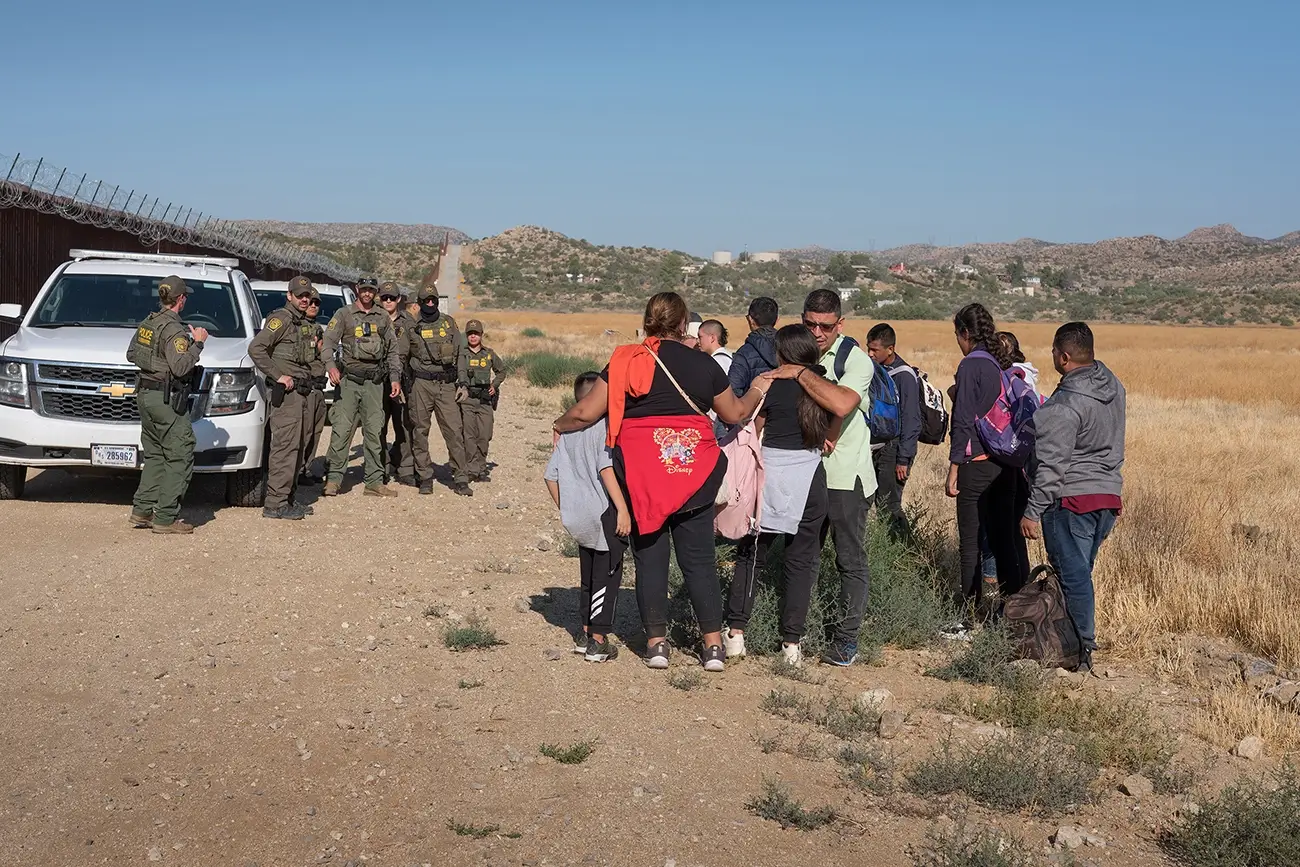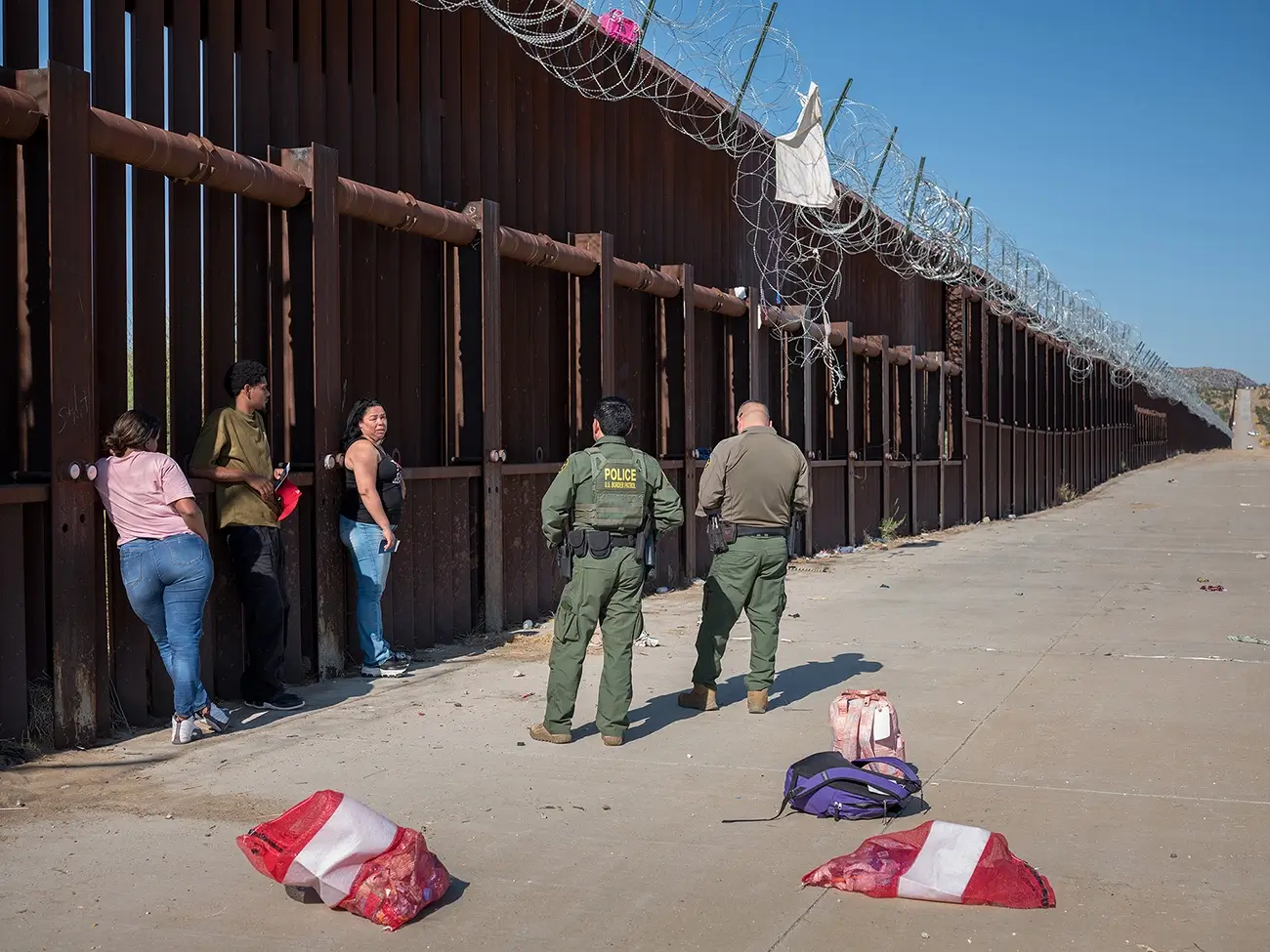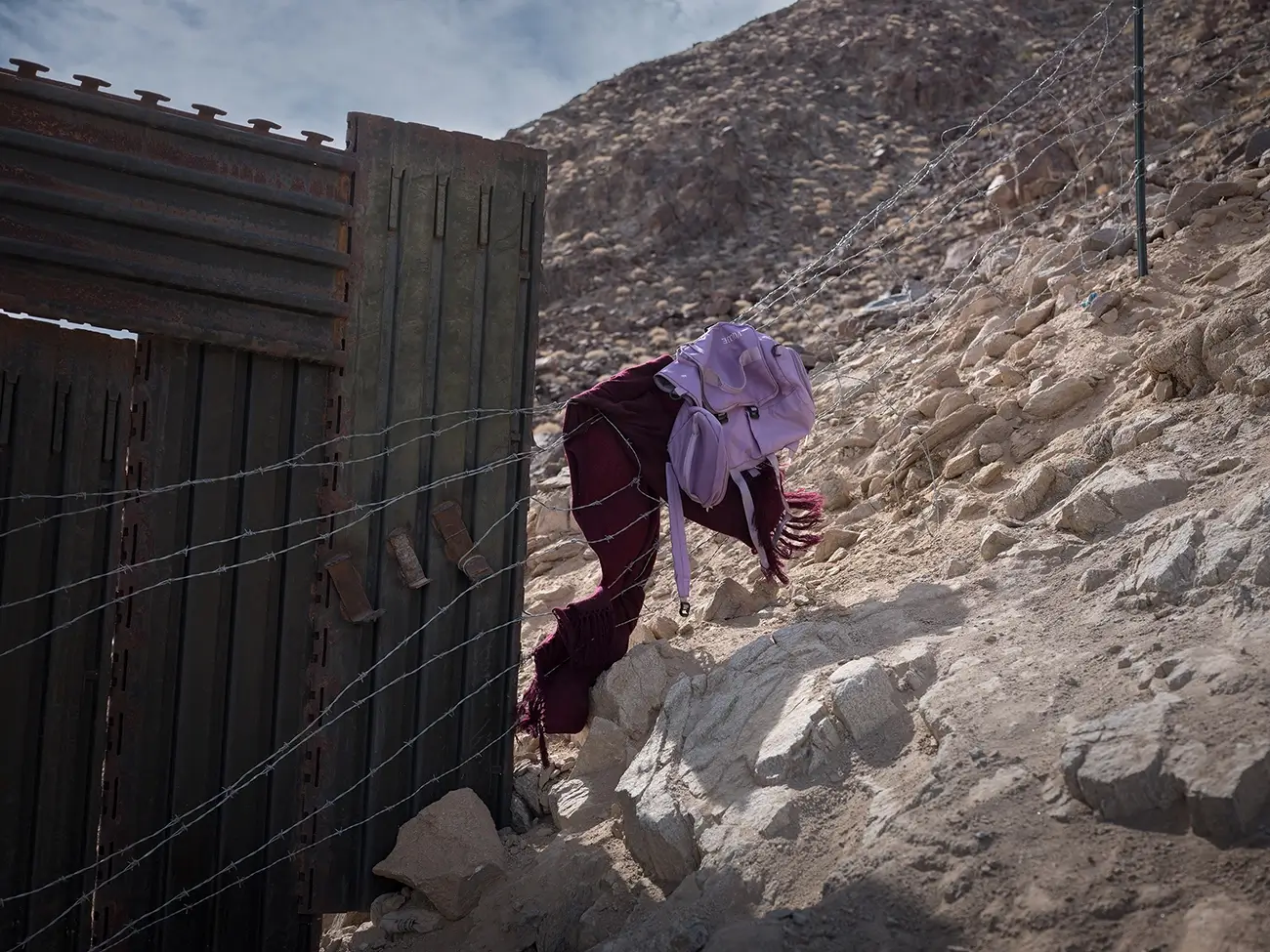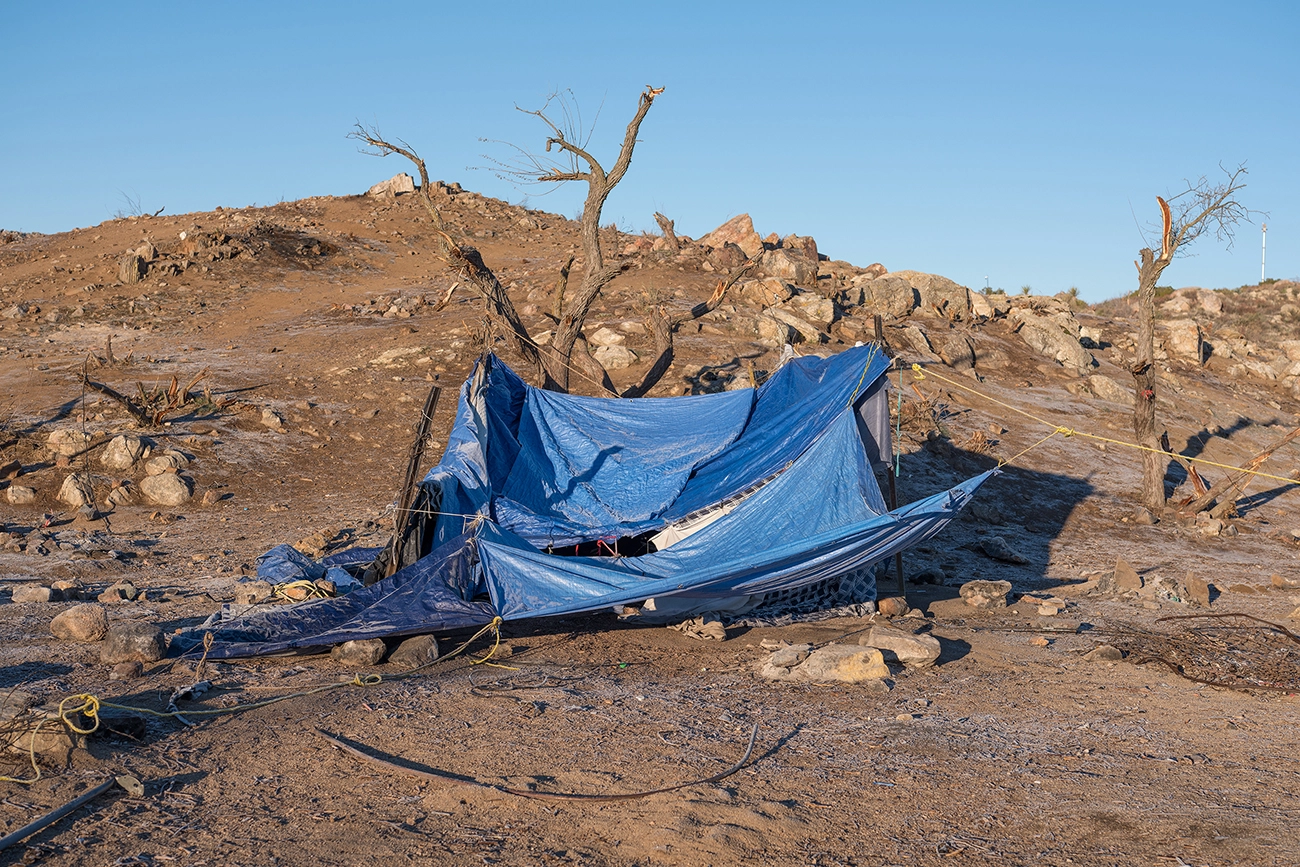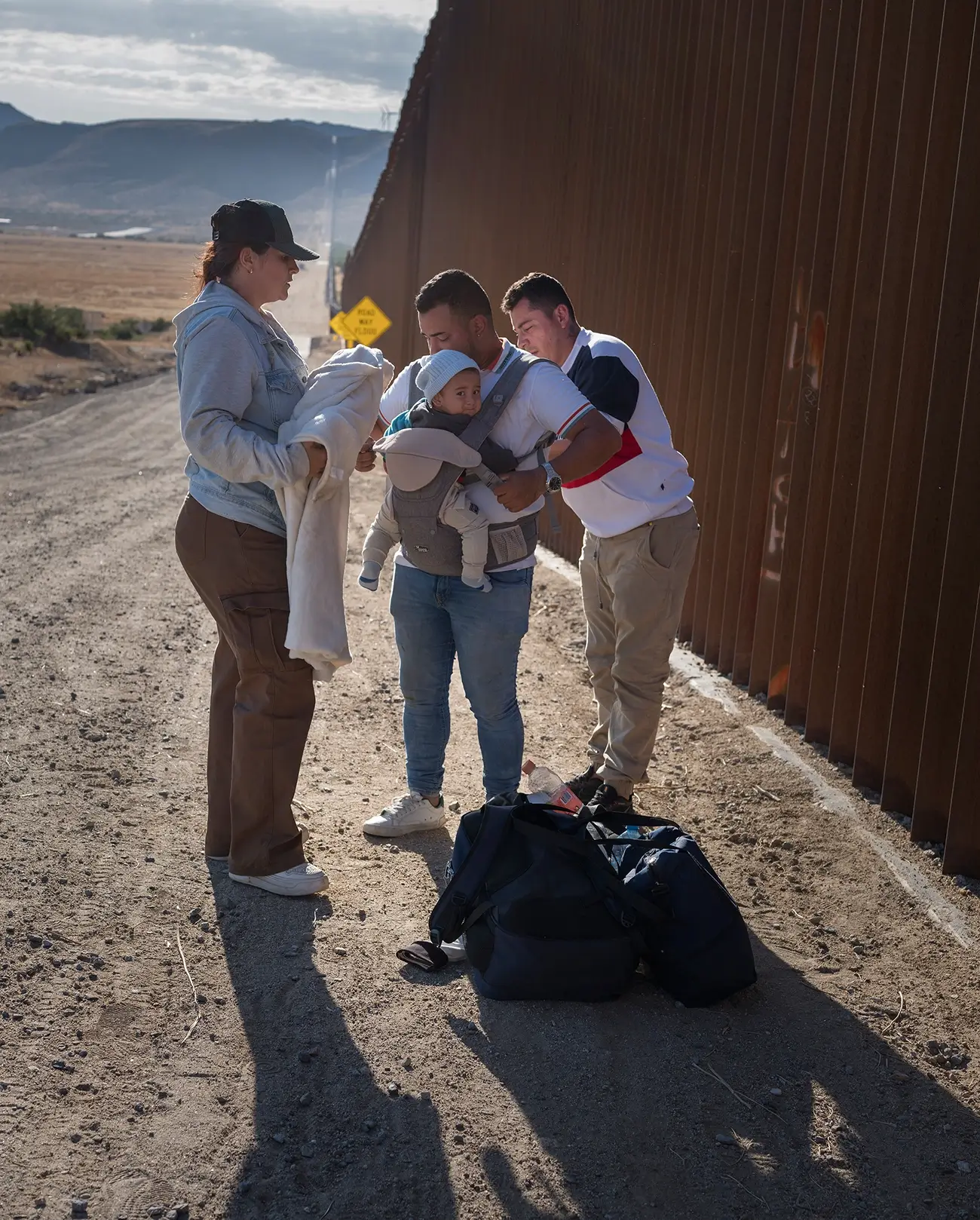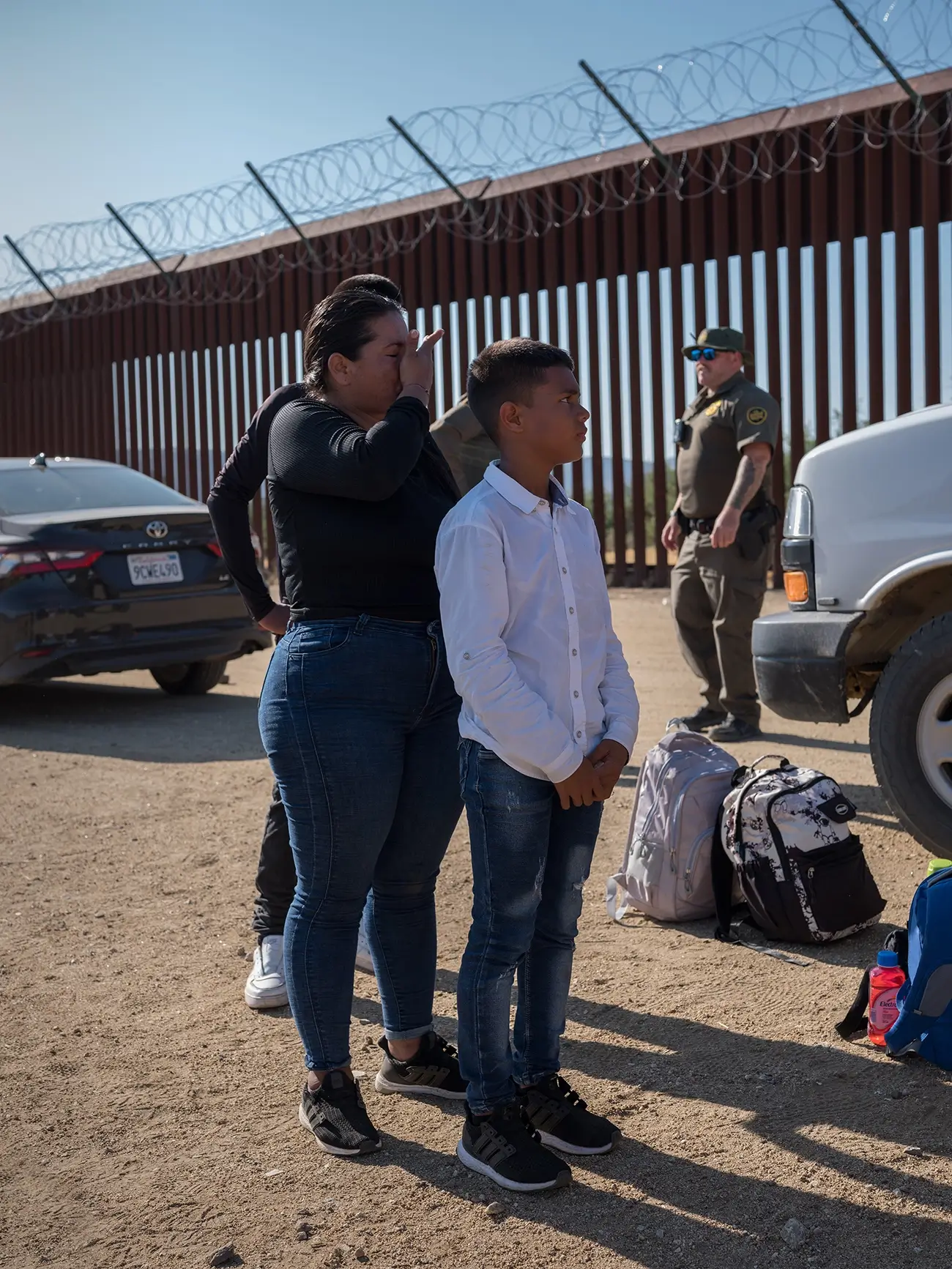Since 2015, I have been captivated by the American West, immersing myself in its landscapes for my projects. I am particularly drawn to Southern California and the arid expanses of Arizona and New Mexico. Over time, I have grown intimately familiar with these deserts, connecting with their communities and embracing the unique, often overlooked no-man’s lands. In January 2024, I began researching the border regions of California, exploring the otherworldly landscapes that characterise these areas. Border landscapes are interstitial and anarchic zones that defy easy categorization. These gray areas are marked by both absence and presence. Natural desolation and human impact intertwine, lending them a strange, almost haunting beauty. A thick silence resonates there, laden with the invisible, with waiting and with loss.
At that time, the country was recording a high number of illegal border crossings. During this peak period, the Border Patrol was visibly overwhelmed and official detention centres were inundated by the migratory surge. Designed for an orderly migration process, the American system was folding under the weight of so many illegal entries, leaving the new arrivals in a dehumanizing limbo. Humanitarian groups observed that there was a lack of water, food and medical services in the overcrowded improvised camps.
These migrants are forced to flee violent situations and conditions of scarcity, sometimes both at the same time. To reach the U.S. border they set out on perilous voyages across deserts, rivers and forbidding terrain. By the time they set foot on U.S. soil, they are often exhausted and traumatised. The voyage is hazardous; indeed a good many of them vanish on the way. Desert crossings are dangerous and hundreds of deaths have been recorded at the border. Drug cartels and smugglers demand exorbitant payments and often abandon migrants in hazardous conditions, exposing them to increased risks of death, disappearance and rape. The rising number of migrants fuelled tensions within the American population, which remains deeply divided. While some view it as a humanitarian crisis, others perceive the illegal crossings as a veritable invasion.
At the edge of the border, I witness a constant stream of asylum seekers. Day and night, hurried escapes unfold in rapid succession. I meet anxious glances and share brief nods with those around me. At the foot of the wall, I find a tattered passport with its pages ripped out, scattered identity cards and a faded photo of an unknown family. Fleeing their pasts, Dreamers find no promise of a future here, especially under the current administration.
Isabelle Hayeur
Isabelle Hayeur was born in 1969 in Montreal and raised in a small town in the Canadian province of Quebec, where she still lives today. Since launching her career in the mid-1990s, she has produced a substantial body of work, primarily comprising photographic series, video art, site-specific installations, public art commissions and artist books. Often depicting barren, desolate landscapes and marginalised, disenfranchised peoples, her work responds to the natural environment and land development in the twenty-first century, conjuring feelings of uprootedness, isolation and alienation.
Her works have been shown at the National Gallery of Canada, Massachusetts Museum of Contemporary Arts, Musée d’art contemporain de Montréal, Tampa Museum of Art, New Orleans Museum of Art, Site Santa Fe, Today Art Museum (Beijing), Ryerson Image Centre (Toronto), L'Espace Photographique Contretype (Brussels), Neuer Berliner Kunstverein (Berlin) and Les Rencontres internationales de la photographie à Arles, amongst others.
isabelle-hayeur.com
@ihayeur
